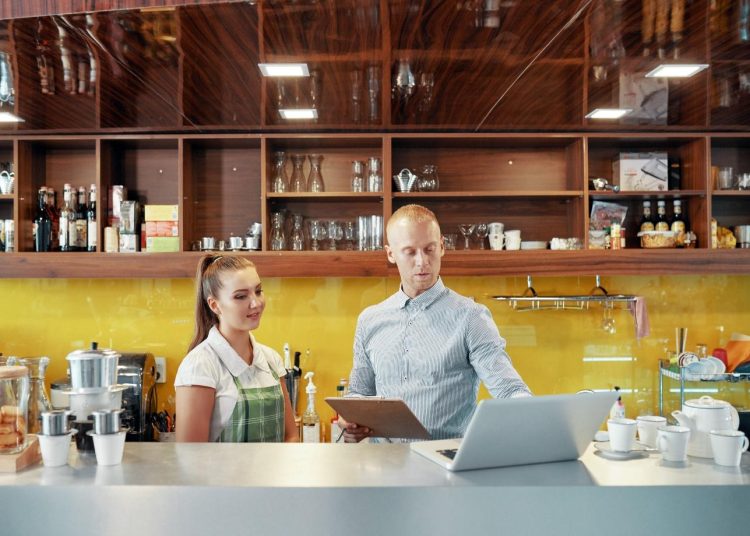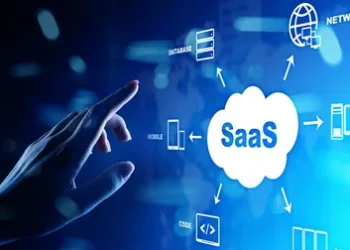The foundation of a successful hospitality business, and likely any business, lies not in its scrumptious menu or exquisite décor but in its financial health. This isn’t to undermine the significance of the latter, but rather to highlight how effective restaurant accounting can set the tone for a flourishing café or restaurant. Indeed, the equation for business profitability doesn’t end at “revenue minus expenses”; rather, it’s learning to grasp the ebbs and flows of your monetary data and using this understanding to guide you toward better business decisions.
At a glance, accounting may appear cumbersome, filled with a plethora of figures, statements, and ratios to analyze. However, when done right, it serves as a flashlight, unveiling the path toward higher profit margins, cost-saving opportunities, better cash flow, and sustainable growth. Thus, this article aims to unravel the knot of hospitality accounting, introducing you to its nitty-gritty details and helping you realize how it can boost your café’s bottom line.
The restaurant industry is a sector where even the smallest of financial mismanagement can lead to substantial losses. With profit margins notoriously thin, even a slight misstep can be fatal. Given this scenario, the importance of efficient accounting practices becomes paramount.
Here, we will take an in-depth look at smart restaurant accounting – its basics, the technology involved, its pros and cons, and above all, its impressive influence on a restaurant’s bottom line. We aim to provide a comprehensive understanding that will help restaurateurs reassess their accounting procedures in light of advanced technology and improved business efficiency.
The Necessity of Understanding Your Restaurant’s Financial Health
If your café were a ship, then its financial health would be the keel, pivotal for balancing and preventing the ship from capsizing. It gives you an immediate snapshot of your business and its ability to cover operational costs, repay debts, invest in growth-enabling ventures, or ensure adequate cash flow. Without this knowledge, navigating through the tumultuous waves of the hospitality industry is like sailing in uncharted waters.
Accounting techniques can serve as the compass pointing towards the true financial standing of your business. They help segregate your revenue into different streams such as food, beverages, or event hosting, providing valuable insights into which stream is most profitable. Similarly, costs aren’t just lumped into one enormous figure. Instead, they’re broken down into food costs, labour costs, and overhead costs, allowing you to pinpoint where most of your expenses are going and identify potential cost-saving opportunities.
Profit Boosting Through Strategic Cost Analysis and Control
In the culinary world, ingredients are king. However, often the cost of these key components is overlooked. Keeping a tab on food costs, adjusting menu prices accordingly, or identifying high-cost items and trying to substitute them with more economically viable ones can result in substantial savings. Similarly, monitoring labour costs, such as staff wages, bonuses, benefits, and comparing them with industry standards can help manage expenses without compromising the quality of service.
Overhead costs, including rent, utilities, insurance, can be hefty but are crucial for running your café. Keeping an eye on these by deploying accounting practices, and trying to negotiate better deals with your suppliers or looking for more energy-efficient alternatives could lead to a more profitable business, without disrupting your operations.
Leveraging Technology for Efficient Restaurant Accounting
In today’s fast-paced world, restaurant accounting is no longer just about keeping tabs on daily sales or tracking expenses. It’s about comprehensive financial management that can make or break your business. Unquestionably, the traditional pen and paper method is quite tedious and prone to errors. This is where technology steps in, transforming restaurant accounting into a streamlined, efficient process.
Consider the advantages of cloud-based accounting software, for instance. It provides real-time financial data at your fingertips, enabling you to track every dollar and cent that comes in and out of your restaurant. Its capabilities extend far beyond basic bookkeeping. It can generate detailed financial reports, track inventory, and even manage payroll. This holistic view of your restaurant’s finances empowers you to make informed business decisions.
Moreover, integrating your Point of Sale (POS) system with accounting software automates the recording of every transaction. This not only minimises human error but also saves valuable time that can be invested in other aspects of your business.
Technology has plunged into every aspect of our lives, and accounting is no exception. Numerous software solutions such as QuickBooks, Xero, and Zoho Books have revolutionized the hospitality accounting landscape. These tools aid in automating basic tasks like payrolls, and invoices, and tracking income and expenses, freeing up your time to focus more on strategic decisions.
Moreover, they offer valuable insights into your business trends, customer behavior, employee performance, and more. Furthermore, they help integrate various financial aspects of your café onto one platform, ensuring efficient and transparent finance management. Thus, it’s time to embrace technology and unlock a smoother, more efficient restaurant accounting experience.
Financial Forecasting: Your Restaurant’s Crystal Ball
Imagine being able to predict the future of your café. That’s what precise financial forecasting can do. It assists in projecting future revenue based on past sales data, seasonal trends, or marketing efforts. It can also predict future costs like food costs, labour costs, or overhead costs, given various factors like inflation, law amendments, or industry trends.
These predictions are worth their weight in gold when it comes to planning budgets, making crucial business decisions, or averting potential financial crisises. Therefore, by integrating financial forecasting into your restaurant accounting, you’ll essentially be driving your business looking forward, not through the rear-view mirror.
Mitigating Financial Risks with Responsible Accounting
In the world of business, the idiom “the only certainties in life are death and taxes” gives way to a trifecta – death, taxes, and risks. However, it’s not about eliminating risks, but learning to manage them using responsible accounting. For instance, diligent bookkeeping can ensure your business is compliant with tax regulations, thereby avoiding any penalties or legal consequences.
Moreover, accounting can help you identify potential roadblocks or challenges, giving you ample time to devise contingency plans or strategies to mitigate them. Essentially, good accounting is synonymous with good risk management, which is integral to keeping your café afloat and profitable in the long run.
The Role of Professional Advice in Restaurant Accounting
Finally, don’t underestimate the value of professional advice in restaurant accounting. Financial advisors and accounting professionals bring in years of expertise, knowledge of the latest financial trends, and an understanding of best accounting practices that can prove to be a game-changer for your café. Restaurant Accounting
An advisor can help you interpret complex financial statements, uncover hidden costs, identify profitable revenue streams, plan budgets, and provide custom strategies to bolster your bottom line. In essence, expert advice can steer you towards a more profitable and growing business.
Conclusion
The restaurant business is all about numbers, and having an efficient, reliable accounting system can be the difference between success and failure. Smart restaurant accounting, with its innovative functionality and data-driven insights, is undoubtedly a game-changer.
While the initial investment may be daunting, the long-term returns in terms of financial control, streamlined operations, and reduced waste more than compensate for it. In the highly competitive restaurant industry, adopting smart practices like advanced accounting systems is no longer a choice, but a necessity.
In conclusion, for restaurateurs eager to enhance profitability, investing in smart restaurant accounting is the step in the right direction – a step towards more significant profits and a more prosperous business realm.















